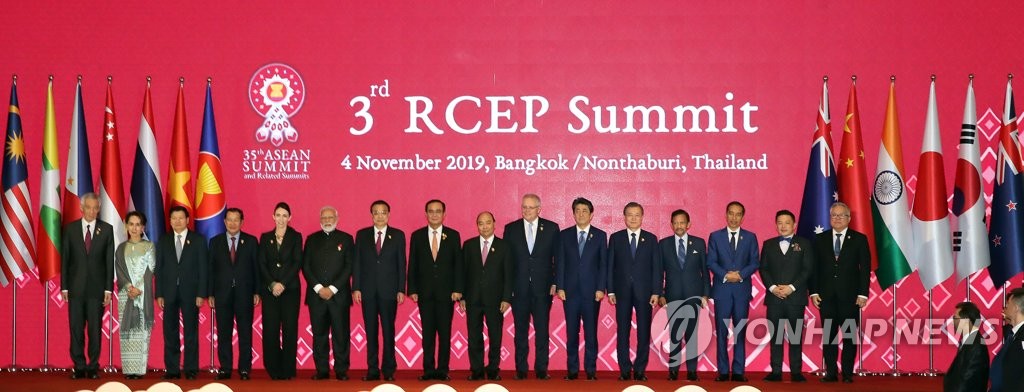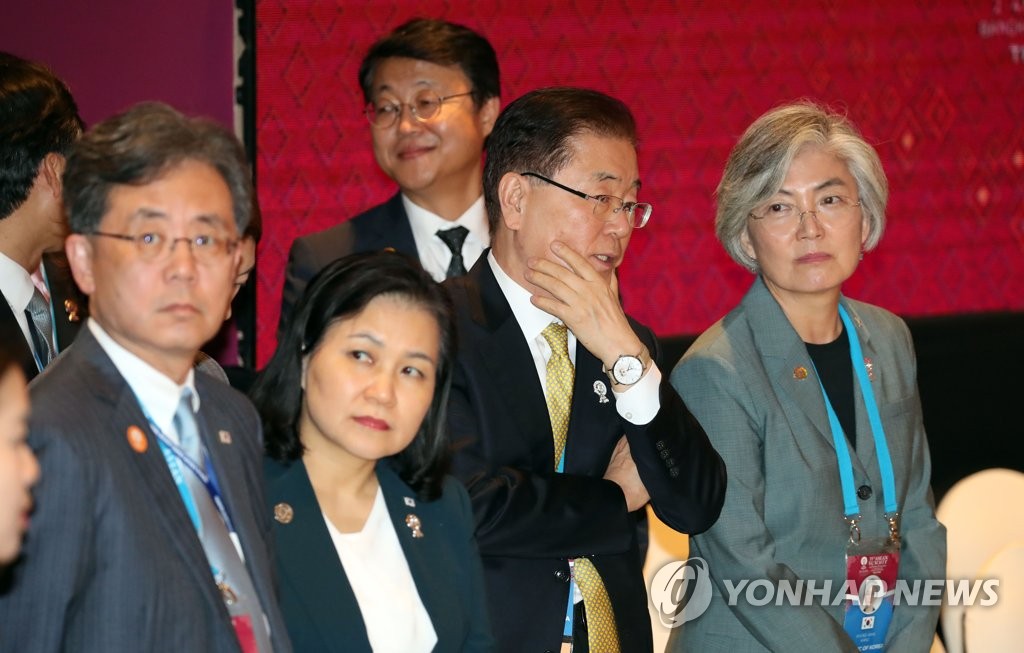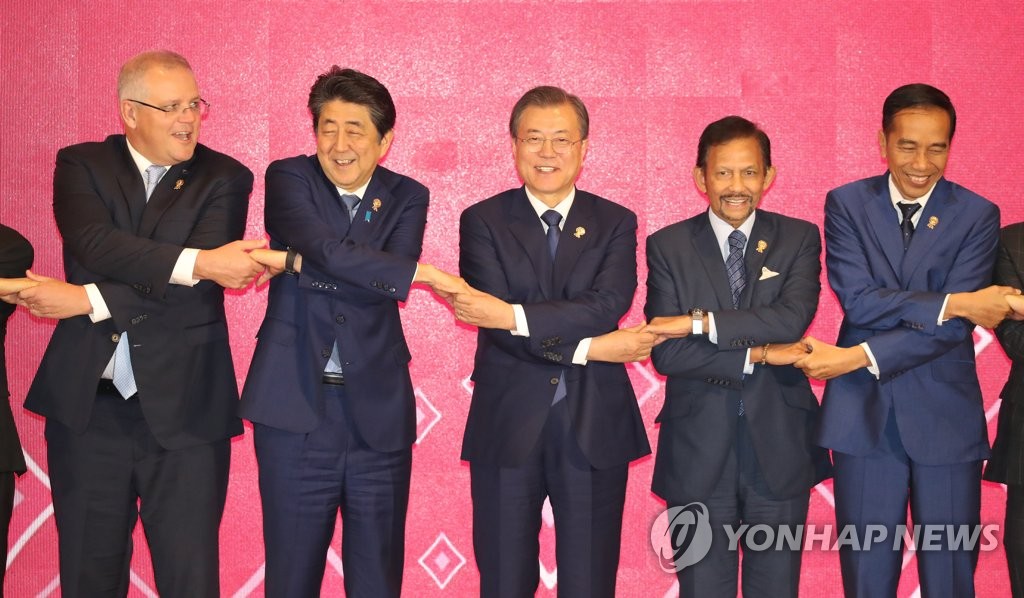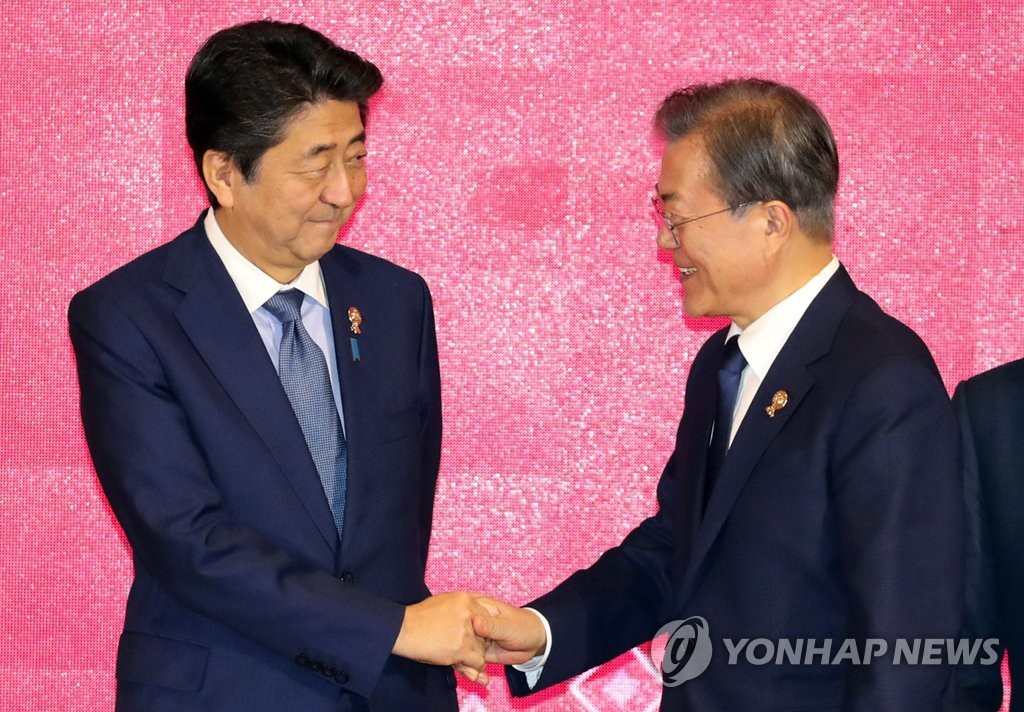- California Assembly OKs highest minimum wage in nation
- S. Korea unveils first graphic cigarette warnings
- US joins with South Korea, Japan in bid to deter North Korea
- LPGA golfer Chun In-gee finally back in action
- S. Korea won’t be top seed in final World Cup qualification round
- US men’s soccer misses 2nd straight Olympics
- US back on track in qualifying with 4-0 win over Guatemala
- High-intensity workout injuries spawn cottage industry
- CDC expands range of Zika mosquitoes into parts of Northeast
- Who knew? ‘The Walking Dead’ is helping families connect
Asia-Pacific nations strike deal on RCEP trade pact
ASEAN member states, South Korea and five other countries reached a deal on a mega Asia-Pacific trade pact, known as the Regional Comprehensive Economic Partnership (RCEP), Monday, effectively concluding yearslong negotiations.
The agreement involved the whole 10-member ASEAN bloc and its dialogue partners: South Korea, China, Japan, Australia and New Zealand. But another participating country, India, did not join the deal.
It came at an RCEP summit held in Bangkok as part of annual regional meetings hosted by ASEAN. Indian Prime Minister Narendra Modi attended the session but refused to agree to the deal. India has cited a significant gap over tariffs and other issues in the China-led RCEP.
“Against the backdrop of a fast-changing global environment, the completion of the RCEP negotiations will demonstrate our collective commitment to an open trade and investment environment across the region,” their joint statement read.




The leaders of the ASEAN member states and its dialogue partners pose for photos at the Regional Comprehensive Economic Partnership (RCEP) summit in Bangkok on Nov. 4, 2019. (Yonhap)
It went on, “We are negotiating an Agreement intended to further expand and deepen regional value chains for the benefits of our businesses, including small and medium enterprises, as well as our workers, producers, and consumers.”
The RCEP will significantly boost the region’s future growth prospects and contribute positively to the global economy, while serving as a supporting pillar to a strong multilateral trading system and promoting development in economies across the region, according to the document.
The RCEP talks commenced in 2013. While the 15 RCEP nations have completed text-based negotiations on all 20 chapters and their market access matters, India has “significant outstanding issues, which remain unresolved,” they added.
They aim to sign a formal accord in 2020.
South Korean Trade Minister Yoo Myung-hee said a long, seven-year journey “is just ahead of its end.”
The RCEP, if implemented, will help inject fresh vigor into regional trade and investment, she said at a press briefing here. She said it’s premature to talk about whether India will eventually join the agreement, adding the other participating countries will continue bilateral and multilateral dialogue to formalize the RCEP in writing on the basis of the Bangkok accord.
The RCEP would herald a mega economic bloc that accounts half of the world’s population and one third of the total gross domestic product across the globe. The minister said it’s expected to help accelerate South Korea’s New Southern Policy, aimed at improving strategic relations mainly with Southeast Asian countries, and to provide local companies with more opportunities to launch businesses in the region.








![일본 사도광산 [서경덕 교수 제공. 재판매 및 DB 금지]](http://www.koreatimesus.com/wp-content/uploads/2024/07/PYH2024072610800050400_P4-copy-120x134.jpg)


